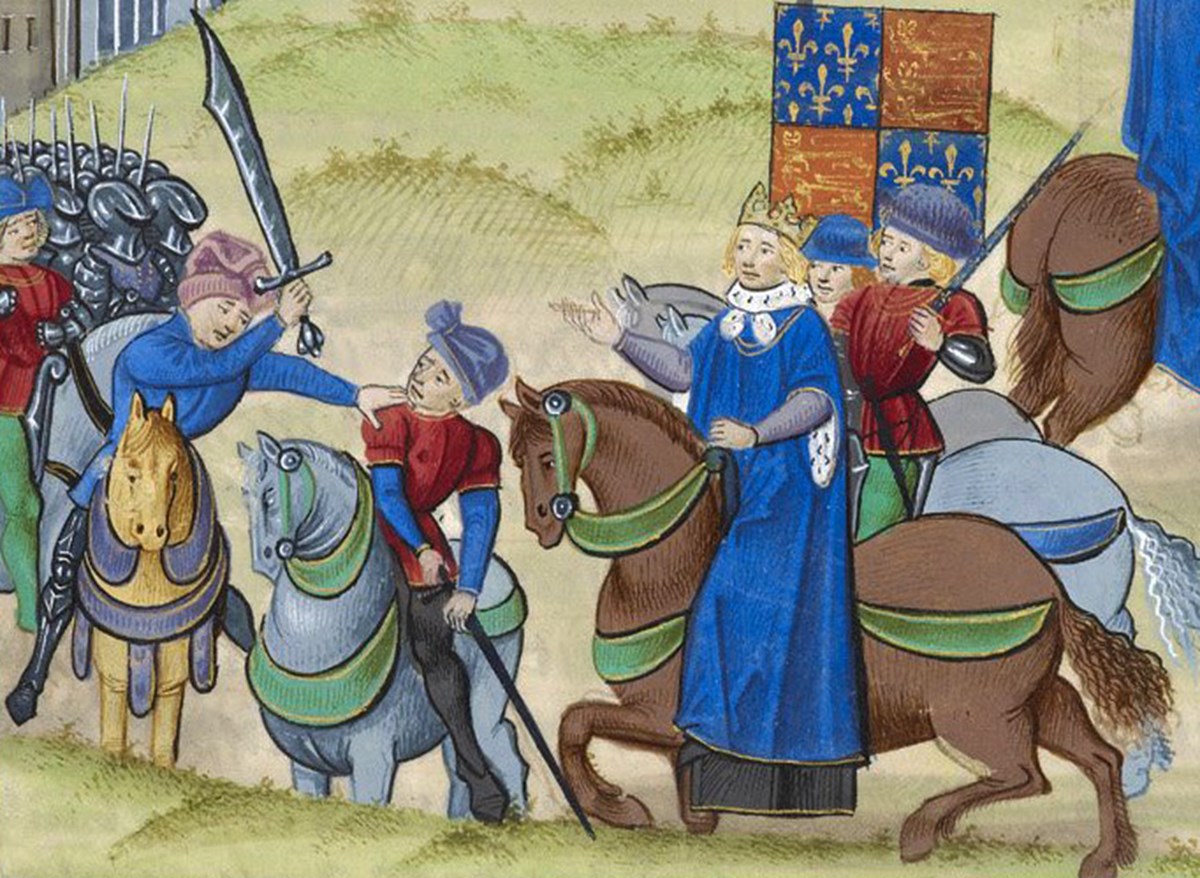At least as far back as ancient Egypt, when meddlesome scribes inspected home kitchens to make sure people were paying the tax on cooking oil, both taxes and the citizenry have been revolting. One particular occasion deserves a mention today because May 30 is the anniversary of a real ripsnortin’ rebellion in England known as the Peasants’ Revolt of 1381.
Taxpayer's Revolt
More than a century and a half after war and the taxes to pay for it led to the Magna Carta in 1215, history repeated itself. This time, the proximate culprits were the French and English monarchies that waged the fruitless “Hundred Years War.” You can only imagine the tax bill if your war is still raging more than a century after it started.
The severity of the people’s reaction bears striking testimony to their disdain for high taxes and arrogant, brutal tax collectors. In the intense but short-lived Peasants’ Revolt, Before it was all over, the death toll on both sides numbered in the thousands.raging mobs seized tax-enforcing judges and clerks and paraded their heads, minus the rest of them, on pikes through the streets of English towns. Jails and buildings where tax records were stored were assaulted and often destroyed, records and all.
Large numbers of tax bureaucrats were killed in often creative ways. Because the Archbishop of Canterbury was sympathetic to the tax collectors, he too was dispatched to his reward much earlier than he ever expected. Even King Richard II, a mere 14-year-old boy, so feared for his life that he briefly granted huge concessions to the protestors. The rebels even amassed an army, which assaulted the capital, seized the Tower of London, and killed the king’s two highest finance officials, the Lord Chancellor and the Lord High Treasurer. Before it was all over, the death toll on both sides numbered in the thousands.
Monty Python and Life in the 15th Century
This was the 14th century, a dreadful time to be alive. If you were 40 years of age in 1381, you were an old-timer. You never knew a day when England wasn’t at war. You remembered growing up in the aftermath of the Black Death, the unspeakable plague that killed off half the country’s population beginning in the late 1340s. You were most likely a serf. (This glum picture reminds me of a humorous Monty Python moment.)
Back in 1215, Magna Carta may have liberated the nobility a bit, but more broadly based “English liberties” were still unrealized for the so-called “masses.”
An unpopular poll tax proved to be the spark of the violent outbreak of 1381. Its first version, introduced in 1379 and slightly revised later, imposed a universal fee of four pence per person over the age of 14. Parliament contracted out its collection to private parties to whom it paid a commission, and it didn’t care what tactics those collectors employed so long as they got the money. It was a devious scheme to maximize revenue by combining the rapaciousness of government with the efficiency of the private sector. As bad as the IRS is today, just imagine what things would be like if it hired MS-13 to be your auditor.
Wat Tyler, Rebel Leader
The principal leader of the revolt that started on May 30, 1381, was a man named Wat Tyler, regarded by many historians as England’s first revolutionary. In his book, The Life and Legend of a Rebel Leader: Wat Tyler, author Stephen Basdeo notes that four centuries after the revolt, none other than America’s Thomas Paine paid tribute to Tyler as "a hero and a freedom fighter…deserving of a monument in his honor for his contribution to the advancement of liberty."
Not much is known of Tyler’s early life, but what we know of his eventful last year makes me think of him as a combination of the redneck banjo player on the porch in the movie Deliverance, the jello-sucking John Belushi in Animal House, and a fire-breathing patriot Patrick Henry.
To his credit, he had an agenda by the time he forced young King Richard II to the negotiating table. Tyler demanded not only a dramatic reduction in taxes but also a cessation of England’s costly foreign adventurism, abolition of wage controls imposed on the peasantry, the elimination of many special privileges of the nobility, and an end to serfdom itself.
For the tax protestors, it was back to the status quo antebellum. Freedom would have to wait for another day.
It may have been the Deliverance/Animal House side of Tyler that doomed his cause. The meeting with King Richard didn’t go so well. At first, the king conceded to most of Tyler’s demands, but then the uncouth backwoodsman let his hair down. Eyewitnesses say he asked for a drink of water, then rudely rinsed his mouth out within inches of the king’s face. One of the king’s servants objected and insulted Tyler, who then attacked the servant. When the lord mayor of London intervened and attempted to arrest Wat, Tyler drew his sword and attacked the mayor. It was all downhill from there, ending rather quickly in Tyler’s public decapitation. In the absence of its leader, the revolt dissipated.
Immediately, King Richard demonstrated just how irresponsible a 14-year-old can be when he has the keys to the car—or the kingdom in this case. He revoked all the concessions he had made to Tyler and issued orders for the arrest and slaughter of those involved in the revolt. For the tax protestors, it was back to the status quo antebellum. Freedom would have to wait for another day.
Every significant historical event offers lessons to be learned. Surely one of those of the Peasants’ Revolt of 1381 is this: when you’re about to win, clean up your act.





